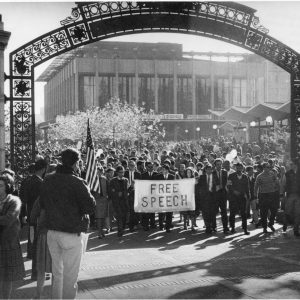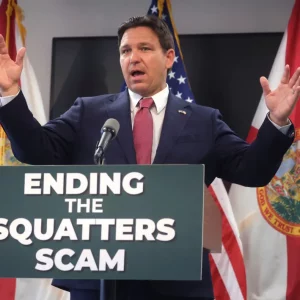Governor Mike Pence of Indiana recently signed into law a Religious Freedom Restoration Act, which shares a near identical title to twenty other states’ acts and one federal law signed in 1993 under the Clinton administration. Taken on face value, it seems to be a rather unremarkable event with plenty of precedence; however, critics exploded into universal condemnation due to a few key differences between Indiana’s bill and its counterparts. The bill has managed to unite business leaders, other governors, human rights groups, and many pundits in outrage over its legalization of discrimination by private parties based on religious freedom. In response, Governor Pence has publicly rushed to defend the bill and stem the attacks on him and his state, but regardless of what happens going forward, the cacophony will likely follow him for the rest of his term.
In 1993, President Bill Clinton signed into law the “Religious Freedom Restoration Act of 1993.” The bill was met with wide support from both sides of the aisle, as it seemed to remedy a controversial and unpopular 1990 Supreme Court Decision. In the case of Employment Division v. Smith (1990), the Supreme Court upheld a decision to fire two Native American private drug counselors for their religious usage of peyote. Thus the RFRA that Clinton signed in office was an attempt to reassert the view that government “should not substantially burden religious exercise without compelling justification,” as the bill states. So why do twenty or so states have similar religious freedom laws if there is already an established federal one? The proliferation of state religious freedom laws can be traced back to the 1997 Supreme Court ruling in City of Boerne v. Flores, which gave states discretion over how to apply the law. Thus a number of states have passed legislation very similar to the federal law and little has been made in objection to it.
The controversy in Indiana stems from the fact that although the bill appears to be another reboot of the federal law, with the title even drawing directly from it, there are a few key differences. Garrett Epps, a constitutional law professor at the University of Baltimore, argues in an Atlantic piece that the language in the bill makes it particularly severe and novel. Epps points to a portion reading: “A person whose exercise of religion has been substantially burdened… by a violation of this chapter may assert the violation or impending violation as a claim or defense in a judicial or administrative proceeding, regardless of whether the state or any other governmental entity is a party to the proceeding.” As Epps puts it, the bill not only gives businesses the same free “exercise of religion” as persons, but it also allows them to use the bill in a private suit against another person, without the government needing to be “a party to the proceeding.” What this basically amounts to is a legalization of discrimination by businesses on religious grounds in Indiana. More troubling is that the state legislature voted down an amendment to clearly state in the bill that it did not permit businesses to discriminate.

The criticism has not just come from Epps though, as a variety of disparate groups and individuals have condemned the passage of the law. CNN Legal Analyst Jeffrey Toobin stated that although “it’s likely that a refusal to serve a gay person wouldn’t stand under the law… a refusal to provide a service for a gay wedding would.” Adam Talbot, a gay rights activist with the Human Rights Campaign, stated, “Indiana [has] the broadest and most dangerous law of its kind in the country.” While Governor Dannel Malloy, on MSNBC, chided, “[the Indiana legislature] knew what they were doing and what they were doing was deciding that they were going to make it legal for people to refuse to serve gay men and women.” Even business leaders from Walmart, Apple, and Yelp have condemned the law, which certainly amps up the pressure on lawmakers in Indiana. The overwhelming criticism has pushed Pence into a corner and has Arkansas Governor Asa Hutchinson, a Republican, saying he won’t sign a similar bill unless it clearly bars discrimination by private businesses. In a press conference responding to the criticism, Pence vehemently denied any malice on the part of his fellow Hoosiers and argued the hubbub was all a “misunderstanding and confusion and mischaracterization [sic].” Pence continued, saying “we’ve got a perception problem here, because some people have a different view. And we intend to correct that.” He went further in offering the guarantee to “move legislation this week to make it clear that this law does not give businesses the right to deny services to anyone.”
Pence’s perhaps calculated, or perhaps sincere, bemusement over the perception of Indiana’s Religious Freedom Act demonstrates a disconnect between lawmakers, the Governor, and the public. It would not be a mischaracterization to say that the representatives in Indiana’s general assembly that crafted the amendment to the Indiana Code knew exactly what they were doing. The language in the bill is novel and appears to be deliberately different from the federal act of a similar name. Meanwhile, Governor Pence seemed to have a fundamental misunderstanding of the act he signed into law, claiming previously that like the federal law, this act applied only to disputes between citizens and the state government. But perhaps the greatest mistake in this whole process is that the bill’s supporters have made a grave political miscalculation. Indiana has found itself on the wrong side of history and perhaps worse for many of those politicians, the wrong side of big businesses too.




